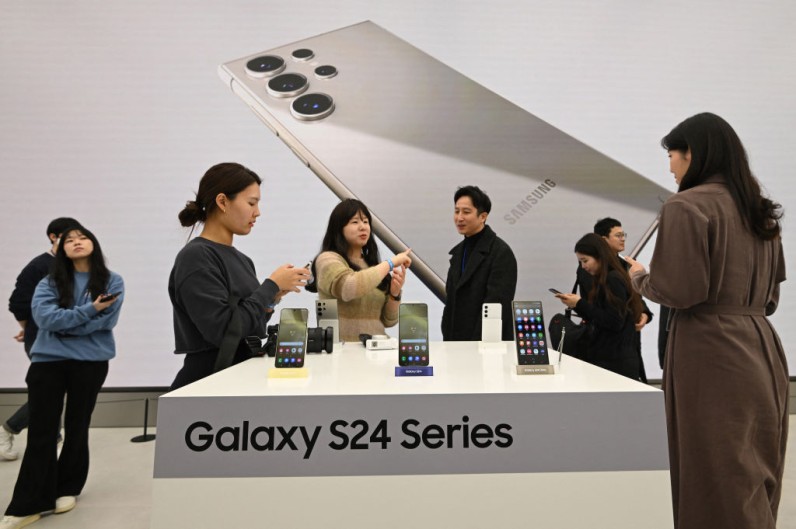Samsung forecasted a steady recovery in tech demand and memory chips in 2024 despite a 34% decline in fourth-quarter earnings due to sluggish consumer spending in various divisions.
The largest memory chip manufacturer in the world predicted that as the popularity of artificial intelligence (AI) grows, mobile and computer makers would include more and better processors in their products. The gradual recovery of demand would also be helped by the need to replace aging servers.
Q4 Performance Report
Reuters reported that from October to December 2023, Samsung reported a decline in operational profit of 2.8 trillion won ($2.11 billion), down from 4.3 trillion won (3.2 billion) in the same period a year ago.
An unprecedented slump due to sluggish demand for devices that employ chips prompted its chip division to swing to a record loss of 14.9 trillion won ($11 billion) in 2023, down from a profit of 23.8 trillion won ($17.8 billion) the previous year.
Samsung's fourth-quarter losses shrunk to 2.18 trillion won ($1.6 billion), the lowest quarterly loss all of 2023.
Notably, this business unit has traditionally provided Samsung with a steady stream of revenue.

Plans to Dominate and Boost Revenue
This year, Samsung's memory division will primarily concentrate on developing state-of-the-art chips, such as high bandwidth memory (HBM) and server solutions that generate AI.
In an effort to increase the manufacturing capacity of memory chips needed for generative AI, Samsung maintained its 2023 capital expenditures the same as the previous year. This move was made in response to competition from SK Hynix and Micron, which decreased investment.
Although SK Hynix pioneered the most recent version, HBM3, and counts AI chip market leader Nvidia among its clients, experts have noted that Samsung is actively attempting to increase yields for both HBM3 and its upcoming HBM3E products.
Stronger demand for more expensive smartphones, more tablet shipments with new product launches, and demand for wearable devices during the peak Christmas season drove the mobile devices company to a 2.73 trillion won ($2 billion) operating profit in the fourth quarter.
Research firm International Data Corporation (IDC) reports that in 2023, Apple snatched a 20% market share as demand for luxury phones surpassed that of cheaper models, ending Samsung's 12-year reign as the world's top seller of smartphones.
Nevertheless, to compete with Apple, Samsung intends to increase yearly flagship smartphone sales by double digits this year, aided by its newest premium devices with AI features.
It also intends to establish further its dominance in the foldable phone market, where rivals like Motorola, Google, and Chinese companies Honor and Oppo are ramping up their flexible devices.







Join the Conversation